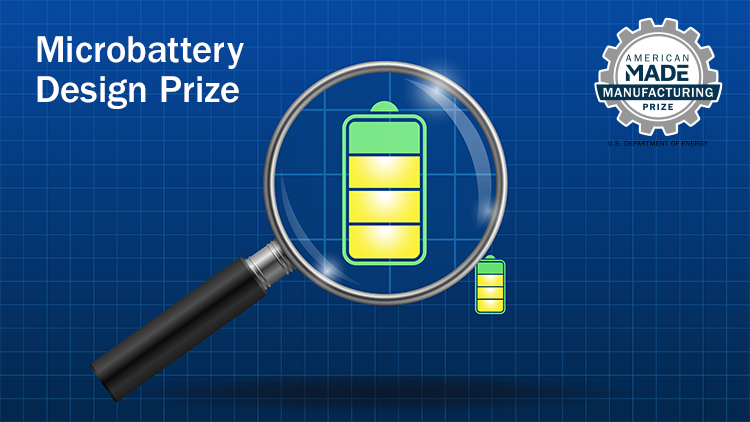Press Release
UMD Start-Up Ionic Devices Wins Microbattery Design Prize from U.S. Department of Energy
FOR IMMEDIATE RELEASE November 29, 2023
CONTACT:
Catherine Stephens/Keith Gregorczyk
301 405 9378
csteph5@umd.edu

Ionic Devices, an innovative start-up emerging from the research labs of Prof. Gary Rubloff (Materials Science and Engineering) and Prof. Sang Bok Lee (Chemistry) at the University of Maryland’s A. James Clark Engineering School, has been awarded the Phase 1 Microbattery Design Prize by the U.S. Department of Energy (DOE) Advanced Materials and Manufacturing Technologies Office (AMMTO). This accolade is a testament to the university’s groundbreaking work in the field of microbattery design, aimed at propelling advancements in clean energy manufacturing, sensor technologies, circuit-integrated batteries, and various next-generation ‘iontronic’ devices.
The Microbattery Design Prize is part of the DOE's initiative to advance innovative new designs for microbatteries and accelerate their commercialization and integration into the existing technologies needed for clean energy manufacturing. Ionic Devices' project focuses on developing a solid-state battery, drawing on decades of manufacturing expertise from the semiconductor industry. Noteworthy for its inherent safety due to its solid composition, this innovative battery design is capable of operating at powers significantly higher than traditional lithium-ion batteries. The potential shift in manufacturing methods holds the promise of delivering a more cost-effective, safer, and environmentally friendly battery solution.
Dr. Keith Gregorczyk, Associate Research Scientist at UMD and CEO of Ionic Devices, expressed his enthusiasm, stating, “Winning this award is truly validating. Our approach is very different from traditional battery manufacturing, and we are excited to prove it.”
During Phase 1, participating teams submitted comprehensive designs for batteries, encompassing detailed descriptions, technical specifications, intended applications, and potential impacts. Ionic Devices, as one of the 8 winning teams, was awarded a $75,000 cash prize and the opportunity to conduct battery performance and safety testing at a DOE national laboratory. Success in Phase 1 also qualifies Ionic Devices to progress to Phase 2, where the team will significantly advance their designs to a commercially relevant prototype scale. This phase involves conducting thorough performance and safety testing, techno-economic analysis, and taking strides toward a realistic pathway to commercialization.
The recognition from the DOE underscores UMD’s commitment to pushing the boundaries of battery technology and aligns with the entrepreneurial vision of contributing to a sustainable and technologically advanced future.